
17 Interesting Facts Behind The Sunflowery Masterpieces Of Vincent Van Gogh
Vincent van Gogh is known as a Dutch post-Impressionist painter, tormented genius of art, who had a very special relationship with sunflowers.
Although the artist's series of sunflowers had difficulties during his lifetime, in the contemporary world, they are definitely the most instantly recognizable artworks.
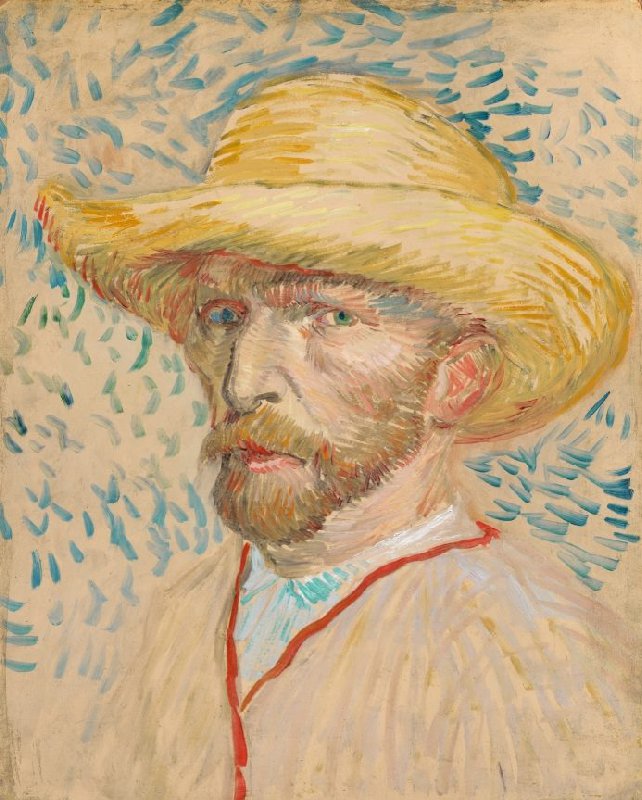
Image credits: Van Gogh Museum
This post may include affiliate links.
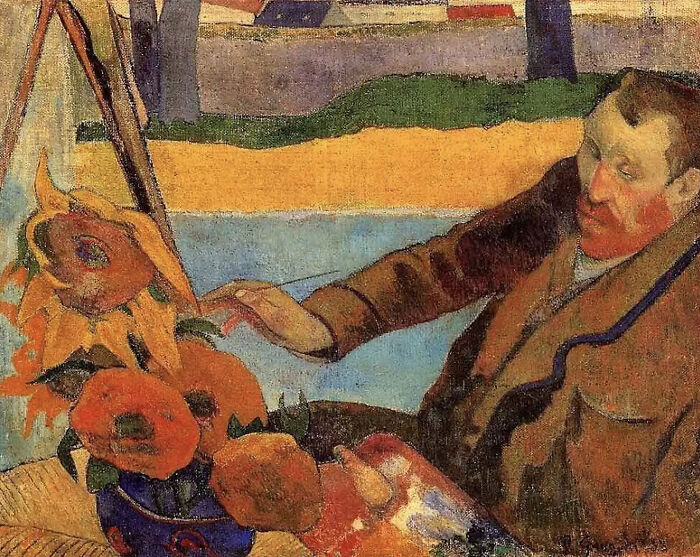 During a brief stay at the Yellow House, Gauguin painted Vincent at work in a canvas entitled "The Painter of Sunflowers".
During a brief stay at the Yellow House, Gauguin painted Vincent at work in a canvas entitled "The Painter of Sunflowers".
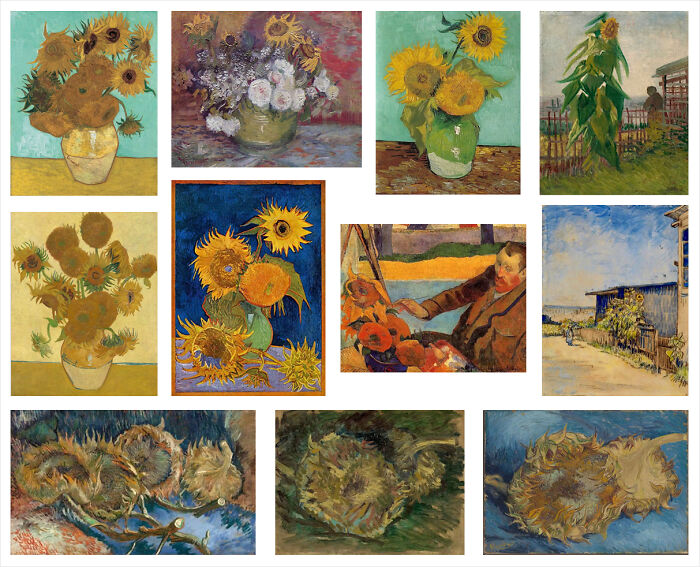 Van Gogh painted 11 works in which sunflowers are the primary subject, and more in which they play a role. One was destroyed in a fire in Japan during an Allied bombing of Osaka during World War II.
Van Gogh painted 11 works in which sunflowers are the primary subject, and more in which they play a role. One was destroyed in a fire in Japan during an Allied bombing of Osaka during World War II.
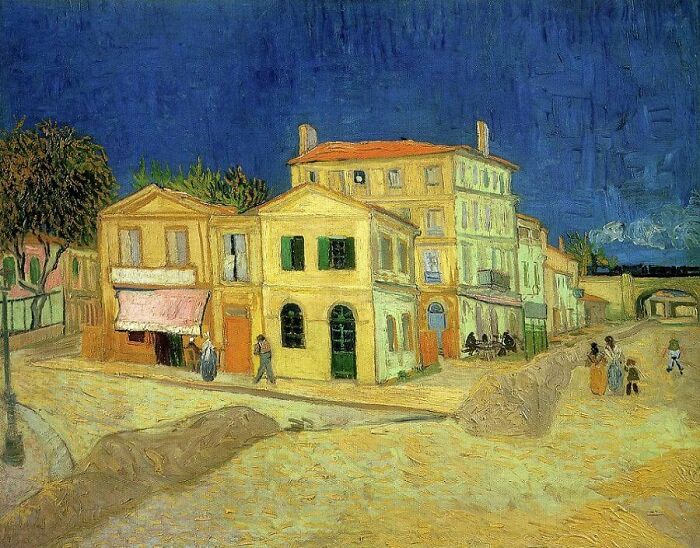 The Sunflowers series is closely related to the Yellow House where the artist rented 4 rooms. His plan was to turn the yellow corner-building into an artists’ house, where like-minded painters could live and work together. Van Gogh planned to decorate the place with his sunflower paintings.
The Sunflowers series is closely related to the Yellow House where the artist rented 4 rooms. His plan was to turn the yellow corner-building into an artists’ house, where like-minded painters could live and work together. Van Gogh planned to decorate the place with his sunflower paintings.
Vincent van Gogh wanted to be known as the painter of sunflowers. In a letter to his brother Theo, Van Gogh boldly declared, “The sunflower is mine”.
The other painters at the time thought that sunflowers were coarse and unrefined but that was exactly what Vincent was attracted to: he saw eternal and fascinating beauty in those imperfections. For the artist, sunflowers also communicated gratitude and happiness, radiating with the energy and vitality of the sun.
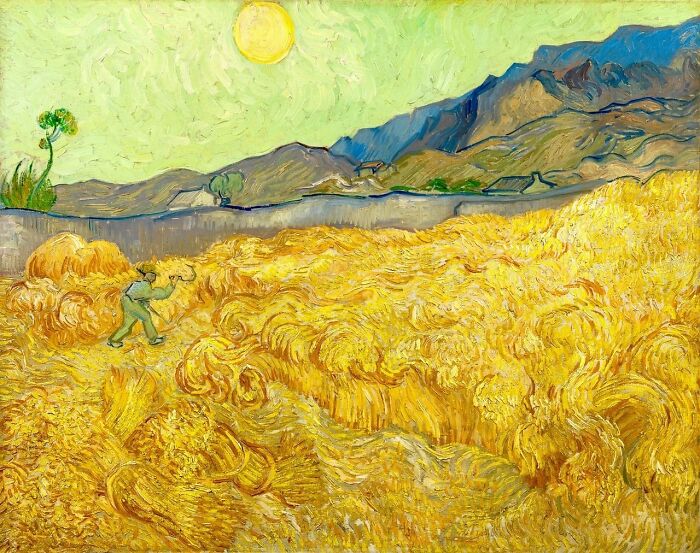 Yellow was a favourite colour of Vincent Van Gogh that lived in most of his paintings - sunflowers, wheat ears, landscapes at harvest time, and in the light of the sun. From the stay in Arles onward, yellow became increasingly important in the paintings of the artist.
Yellow was a favourite colour of Vincent Van Gogh that lived in most of his paintings - sunflowers, wheat ears, landscapes at harvest time, and in the light of the sun. From the stay in Arles onward, yellow became increasingly important in the paintings of the artist.
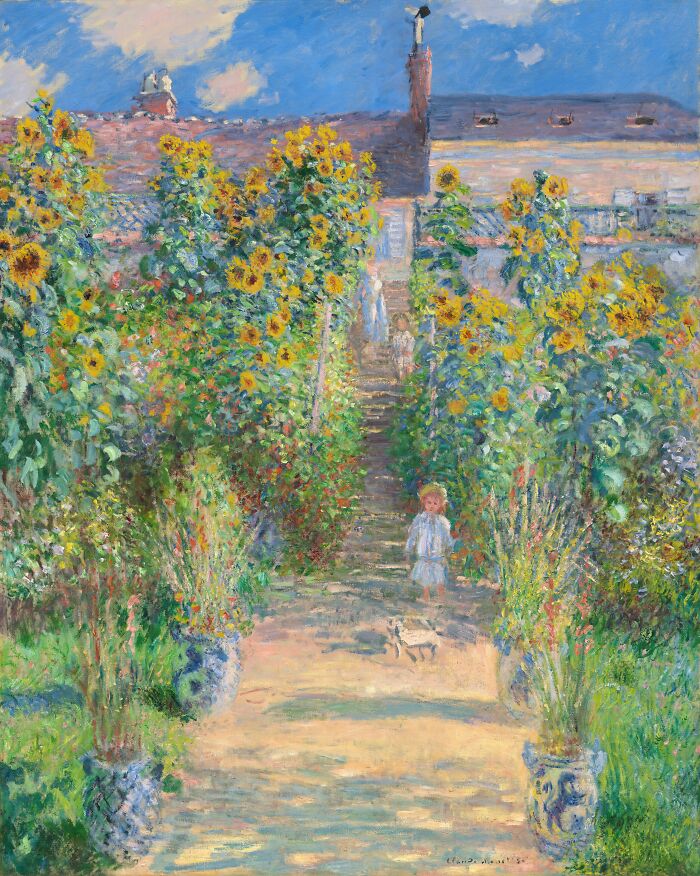 Van Gogh wasn't the only one inspired by sunflowers. William Blake in the late 1700s, Claude Monet in 1881 and Allen Ginsberg in 1955 are some of the other well-known artists and poets who highlighted the image of sunflowers.
Van Gogh wasn't the only one inspired by sunflowers. William Blake in the late 1700s, Claude Monet in 1881 and Allen Ginsberg in 1955 are some of the other well-known artists and poets who highlighted the image of sunflowers.
The paint depicted is "The Artist's Garden at Vétheuil" by Claude Monet
It was in Arles, in the Yellow House, where the great sunflower period of Vincent van Gogh began: "I'm thinking of decorating my studio with half a dozen paintings of sunflowers," he said at the time.
He went on to do just that by painting at least 11 of the ones that we know of, some of which are now lost. Another interesting fact for you is that across 11 paintings, there are a total of 87 sunflowers.
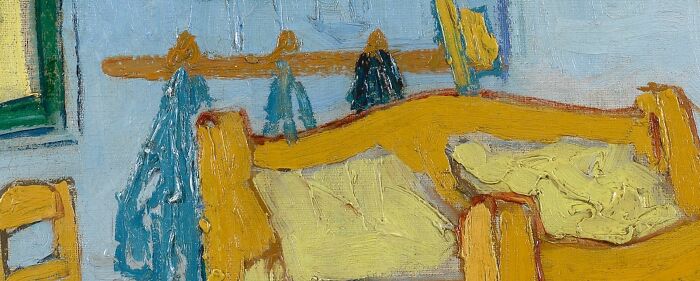 Vincent celebrated the completion of his Sunflowers with a shopping spree. The artist started his series of Sunflowers on Monday 20 August 1888 and finished on the Friday. Right after, he went for a shopping expedition in town, after which he returned with a black velvet jacket and a famous large yellow straw hat. Both items appear to be hanging behind his bed in the painting Van Gogh made of his bedroom two months later.
Vincent celebrated the completion of his Sunflowers with a shopping spree. The artist started his series of Sunflowers on Monday 20 August 1888 and finished on the Friday. Right after, he went for a shopping expedition in town, after which he returned with a black velvet jacket and a famous large yellow straw hat. Both items appear to be hanging behind his bed in the painting Van Gogh made of his bedroom two months later.
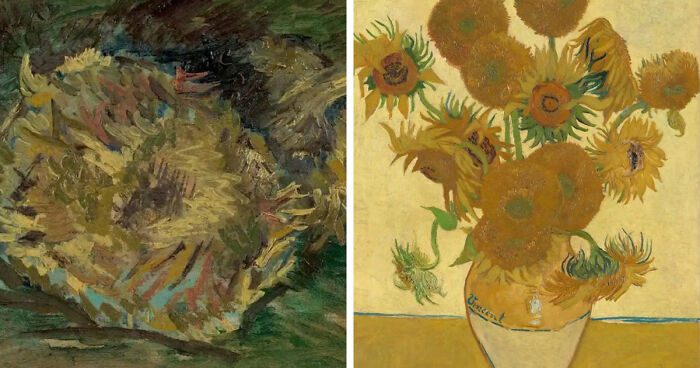 The first series, executed in Paris in 1887, depicts the flowers lying on the ground, while the second set, made a year later in Arles, shows a bouquet of sunflowers in a vase.
The first series, executed in Paris in 1887, depicts the flowers lying on the ground, while the second set, made a year later in Arles, shows a bouquet of sunflowers in a vase.
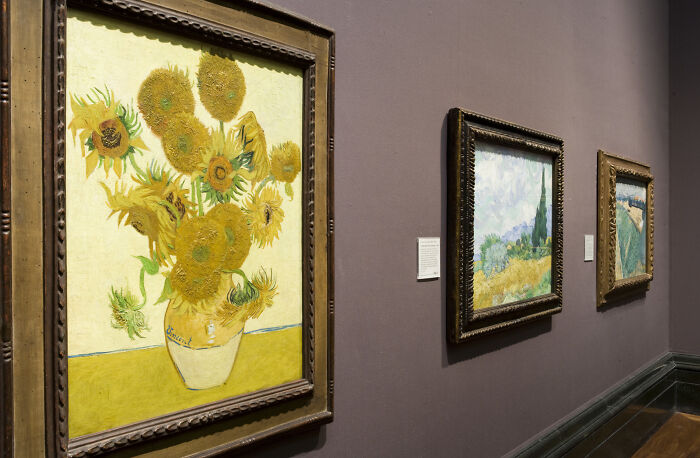 One of the original works of "Sunflowers" is part of the collection of the National Gallery of London and former Prime Minister Margaret Thatcher once asked to see Van Gogh's chrysanthemums. Nobody thought to correct her.
One of the original works of "Sunflowers" is part of the collection of the National Gallery of London and former Prime Minister Margaret Thatcher once asked to see Van Gogh's chrysanthemums. Nobody thought to correct her.
Vincent was very conscious about using the complementary color scheme in his paintings to achieve harmony throughout each piece. Almost 90% of his paintings used blue and yellow as complementary colors. "Arranging colours in a painting," Van Gogh wrote to his sister Wil, "to make them shimmer and stand out through their contrasts, that's something like arranging jewels or designing costumes."
Yellow was one of artist’s favourite ones. He used bright yellows early in his career, adding other hues like ochre and cadmium yellow later on.
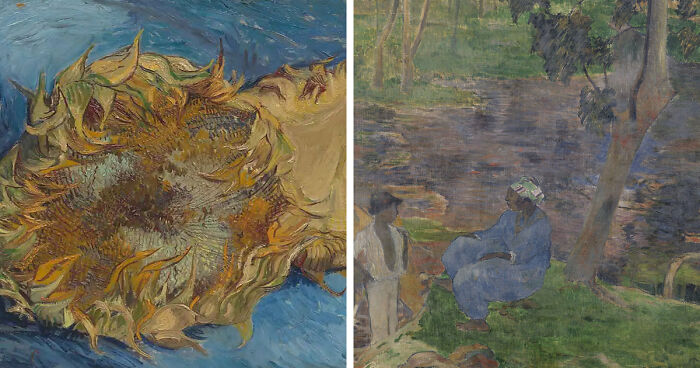 During their 1st meeting in Paris in 1887, Van Gogh and Paul Gauguin exchanged a couple of paintings: Van Gogh gave his two studies of sunflowers and Gauguin his artwork "On the Shore of the Lake, Martinique (Negresses)" from 1887.
During their 1st meeting in Paris in 1887, Van Gogh and Paul Gauguin exchanged a couple of paintings: Van Gogh gave his two studies of sunflowers and Gauguin his artwork "On the Shore of the Lake, Martinique (Negresses)" from 1887.
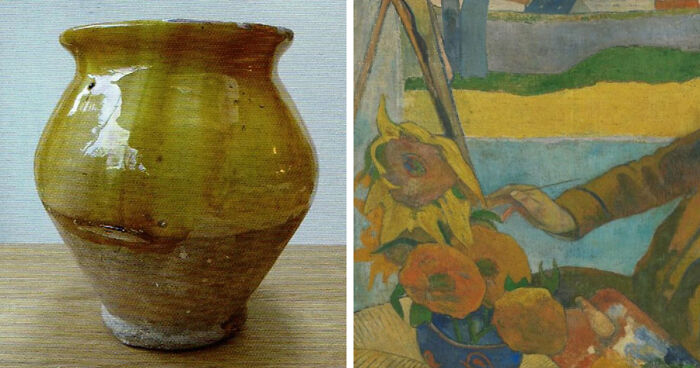 Van Gogh did not actually paint the flowers in a pot because it was not steady enough to hold the heavy flowers and would have toppled over. It's assumed that the artist had a similar pot in his kitchen-studio to serve as his model, but the 15 sunflowers were not actually placed in it.
Van Gogh did not actually paint the flowers in a pot because it was not steady enough to hold the heavy flowers and would have toppled over. It's assumed that the artist had a similar pot in his kitchen-studio to serve as his model, but the 15 sunflowers were not actually placed in it.
Van Gogh had a deep admiration for Claude Monet; therefore, it's possible to see some influences such as powerful and expressive color palette and quality of impassioned drawing that are much more apparent in the flower paintings.
Monet painted a vase loaded with sunflowers about seven or eight years before Vincent van Gogh painted his series. Yet Monet focused more on the composition as a whole, and unlike Van Gogh, he painted the sunflowers with no sign of decay.
The flower that always turns towards the sun became a signature of the short yet truly remarkable career of Vincent van Gogh.
After the tragic day, Vincent's doctor, Paul Gachet, made a symbolic drawing inscribed “Le Tournesol” (The Sunflower), as well as planting sunflowers on the grave, while as a tribute to his lost friend, fellow artist Paul Gauguin grew sunflowers in Polynesia as well.
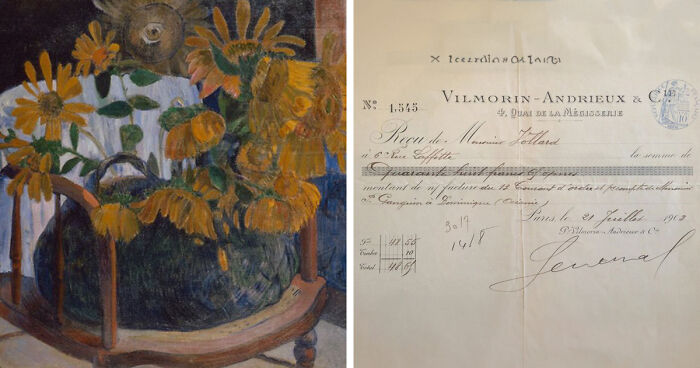 In 1901, Gauguin, in Tahiti, painted four still-lifes of sunflowers resting on a chair as a salute to his long-departed friend Van Gogh. Gauguin had grown the flowers with seeds imported from France.
In 1901, Gauguin, in Tahiti, painted four still-lifes of sunflowers resting on a chair as a salute to his long-departed friend Van Gogh. Gauguin had grown the flowers with seeds imported from France.
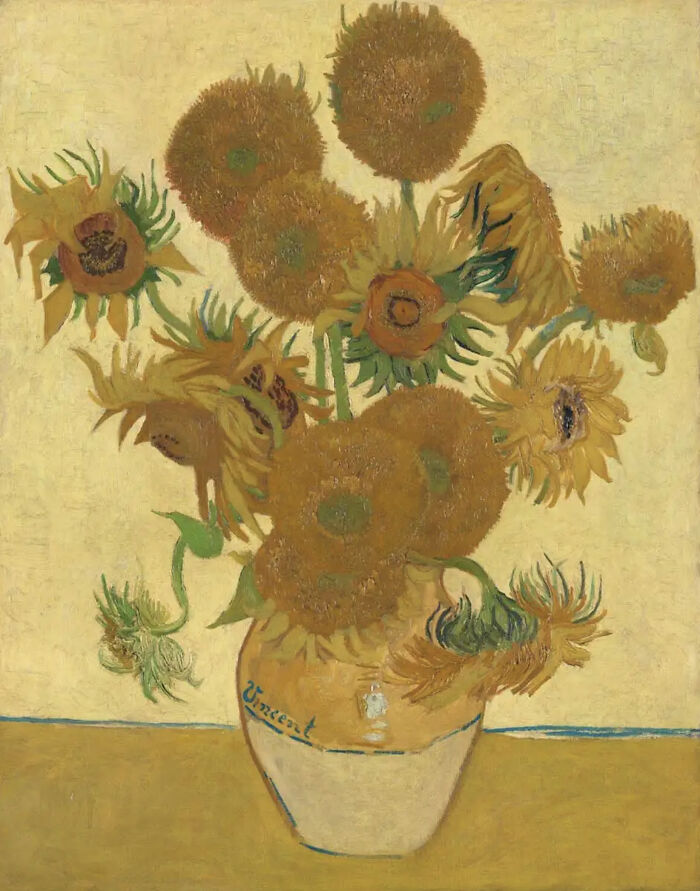 Vincent Van Gogh's sunflowers caused a huge scandal in the 1890 Les XX exhibition - an invitation-only show exclusively for members in Brussels, Belgium. Two days before the opening, Henry de Groux announced that his works would not be seen side by side with the "abominable Pot of Sunflowers by Monsieur Vincent or any other agent provocateur". At the opening dinner, De Groux once again attacked Van Gogh's paintings and called him "an ignoramus and a charlatan".
Vincent Van Gogh's sunflowers caused a huge scandal in the 1890 Les XX exhibition - an invitation-only show exclusively for members in Brussels, Belgium. Two days before the opening, Henry de Groux announced that his works would not be seen side by side with the "abominable Pot of Sunflowers by Monsieur Vincent or any other agent provocateur". At the opening dinner, De Groux once again attacked Van Gogh's paintings and called him "an ignoramus and a charlatan".
I really don't like sunflowers, or the color yellow, but Van Gogh is my favorite painter. I love his works. He's so unique. I think he's highly misunderstood, and was talented beyond belief. Such a tragic life for such a unique man. Listen to Don McLean's "Vincent" song. It's lovely and it's about Van Gogh.
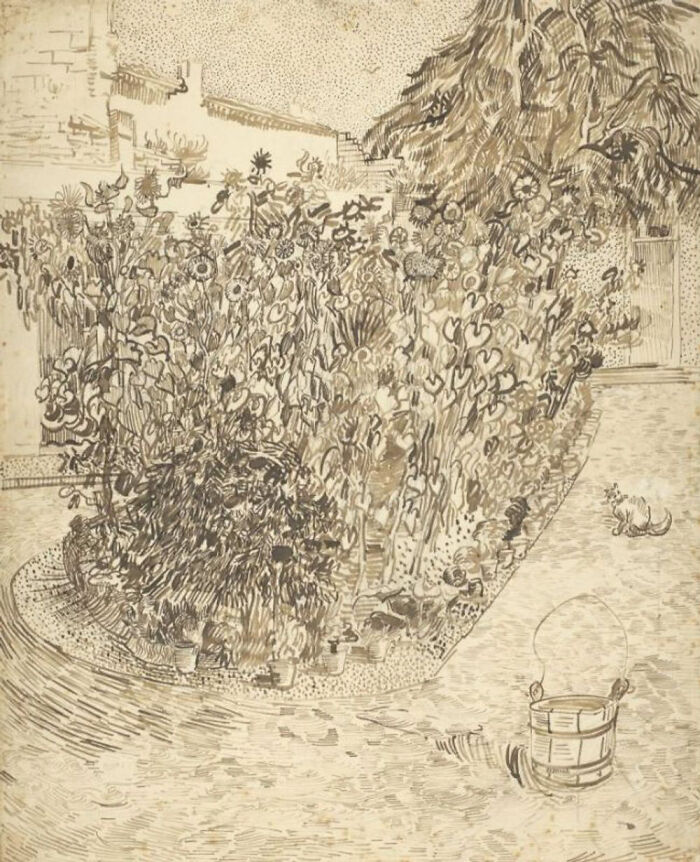 A week before starting on the paintings, Van Gogh drew sunflowers in the garden of a bathhouse in the brothel quarter.
A week before starting on the paintings, Van Gogh drew sunflowers in the garden of a bathhouse in the brothel quarter.
Strangely enough, the sunflowers look like they were drawn by a preschooler, the rest of the sketch shows such beauty and personality created by a few simple lines.
Leo Jansen, a curator at the Van Gogh Museum, says that the public is hardly aware that Van Gogh created a series of paintings of sunflowers: "For nine out of 10 people I tell, it’s news.” Martin Bailey, who published a book "The Sunflowers Are Mine: The Story of Van Gogh’s Masterpiece" also agrees with this opinion: “A lot of people know one of the Sunflowers, and don’t even realize there was a series."
Therefore, I highly recommend perusing the rest of these 17 facts related to the sunny flower that brought an eternal light to the unbearably difficult and deeply painful life of Vincent van Gogh.
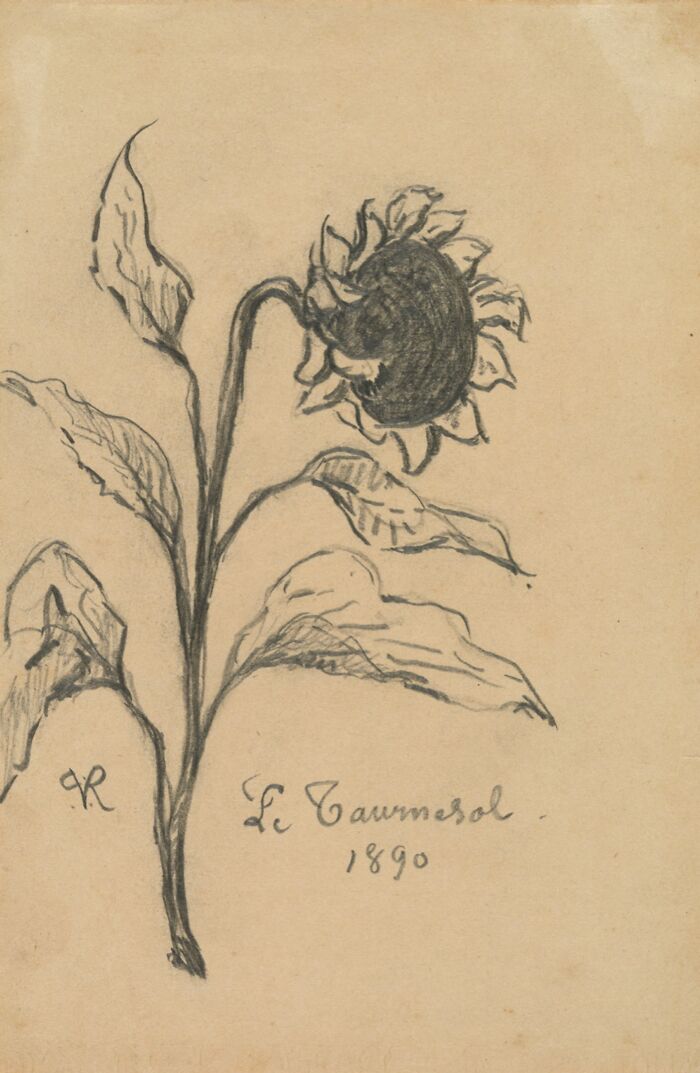 After Vincent’s tragic demise, his doctor, Paul Gachet, drew a poignant single sunflower. For the ones close to Vincent, the flower that turns towards the sun had already become inextricably linked with the artist.
After Vincent’s tragic demise, his doctor, Paul Gachet, drew a poignant single sunflower. For the ones close to Vincent, the flower that turns towards the sun had already become inextricably linked with the artist.
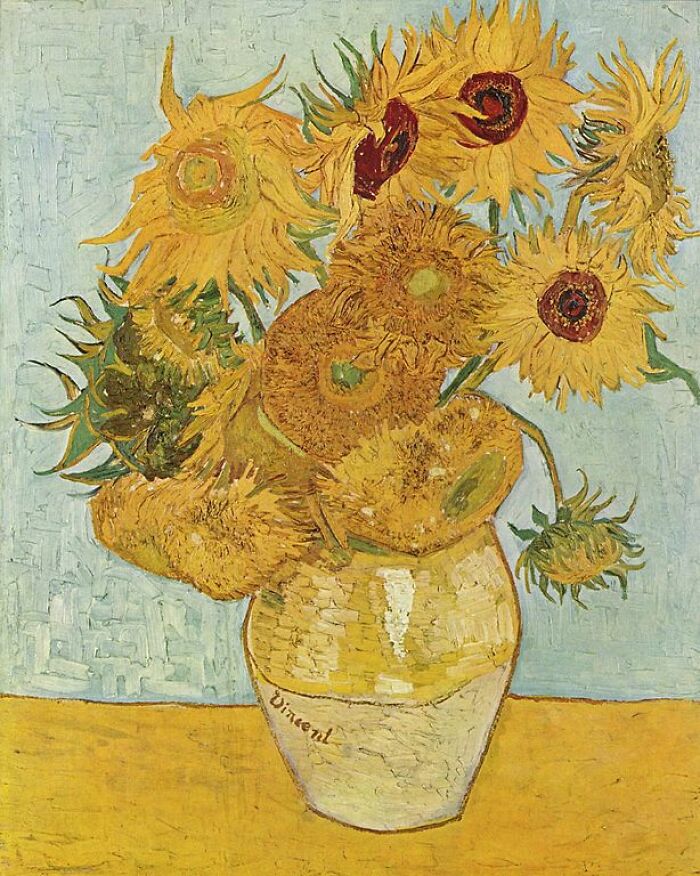 Van Gogh used to create the vivid sunflowers in his art with a bright, intense yellow cadmium pigment that was first developed in the mid-19th century.
Van Gogh used to create the vivid sunflowers in his art with a bright, intense yellow cadmium pigment that was first developed in the mid-19th century.
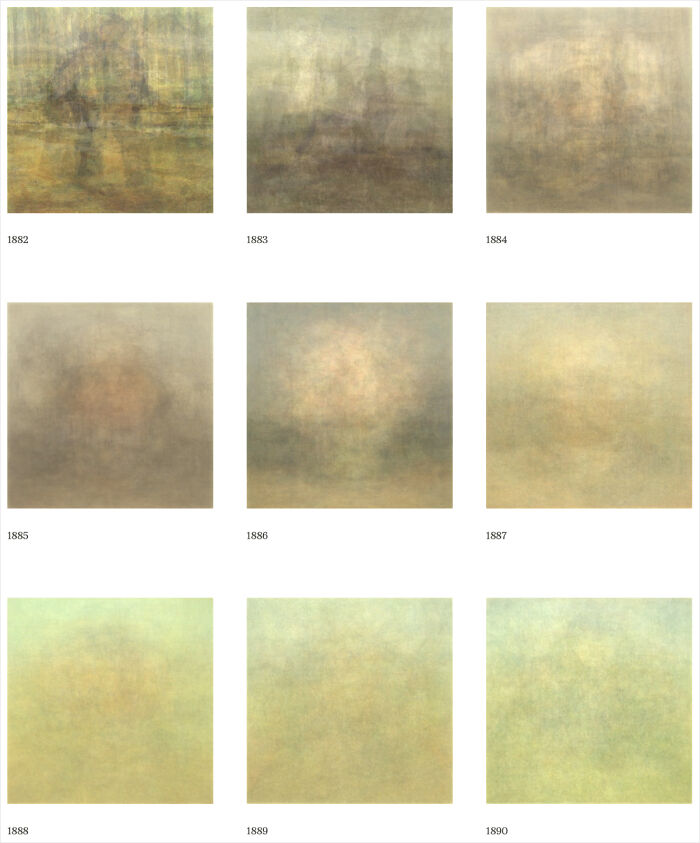 Van Gogh shifted his colour palette towards a lighter yellow palette starting in 1888. The researchers believe that it happened due to illness/medication leading to “yellow vision” or influence from the French Impressionists while working in Paris.
Van Gogh shifted his colour palette towards a lighter yellow palette starting in 1888. The researchers believe that it happened due to illness/medication leading to “yellow vision” or influence from the French Impressionists while working in Paris.
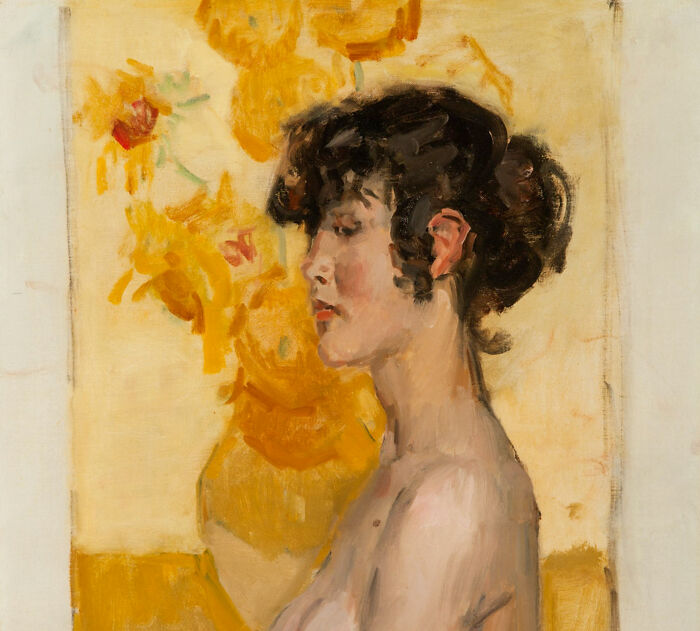 Jo Bonger, Theo’s widow, had a romantic affair with the Dutch painter Isaac Israëls in the mid-1890s. In 1918 she lent him the Sunflowers with a yellow background. Israëls hung it in his sitting room and included it in paintings with various models (but not Jo).
Jo Bonger, Theo’s widow, had a romantic affair with the Dutch painter Isaac Israëls in the mid-1890s. In 1918 she lent him the Sunflowers with a yellow background. Israëls hung it in his sitting room and included it in paintings with various models (but not Jo).
I've been to the Van Gogh museum in Amsterdam. His paintings of poor people and workers are better in my opinion.
I don't know why you got downvoted. I enjoy his pictures of people and buildings better than his flowers too, but I'm a huge fan.
Load More Replies...I've been to the Van Gogh museum in Amsterdam. His paintings of poor people and workers are better in my opinion.
I don't know why you got downvoted. I enjoy his pictures of people and buildings better than his flowers too, but I'm a huge fan.
Load More Replies...
 Dark Mode
Dark Mode 

 No fees, cancel anytime
No fees, cancel anytime 













































